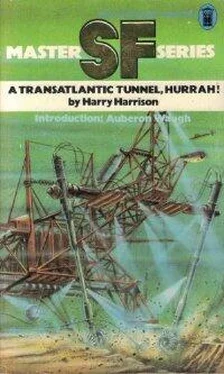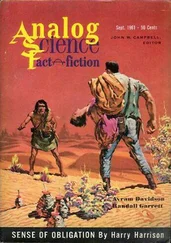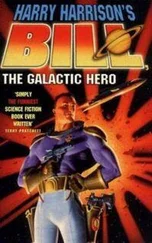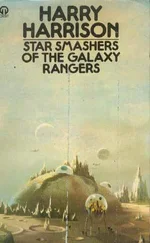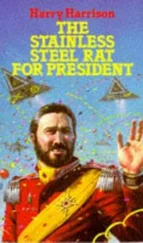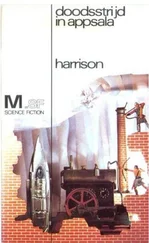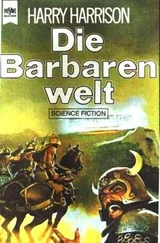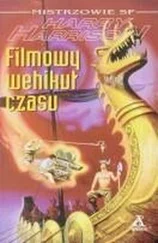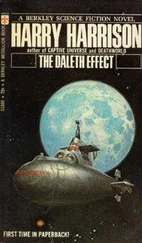Harry Harrison - A Transatlantic Tunnel, Hurrah!
Здесь есть возможность читать онлайн «Harry Harrison - A Transatlantic Tunnel, Hurrah!» весь текст электронной книги совершенно бесплатно (целиком полную версию без сокращений). В некоторых случаях можно слушать аудио, скачать через торрент в формате fb2 и присутствует краткое содержание. Год выпуска: 1972, ISBN: 1972, Издательство: Faber and Faber, Жанр: Исторический детектив, на английском языке. Описание произведения, (предисловие) а так же отзывы посетителей доступны на портале библиотеки ЛибКат.
- Название:A Transatlantic Tunnel, Hurrah!
- Автор:
- Издательство:Faber and Faber
- Жанр:
- Год:1972
- ISBN:0-571-09996-3
- Рейтинг книги:5 / 5. Голосов: 1
-
Избранное:Добавить в избранное
- Отзывы:
-
Ваша оценка:
- 100
- 1
- 2
- 3
- 4
- 5
A Transatlantic Tunnel, Hurrah!: краткое содержание, описание и аннотация
Предлагаем к чтению аннотацию, описание, краткое содержание или предисловие (зависит от того, что написал сам автор книги «A Transatlantic Tunnel, Hurrah!»). Если вы не нашли необходимую информацию о книге — напишите в комментариях, мы постараемся отыскать её.
.
Captain Augustine Washington and his team of navvies are driving a tunnel under the Atlantic in a heroic feat of construction. For Gus, a descendant of the infamous George Washington, executed as a traitor after the Battle of Lexington, this is a chance to redeem the family name.
A Transatlantic Tunnel, Hurrah! — читать онлайн бесплатно полную книгу (весь текст) целиком
Ниже представлен текст книги, разбитый по страницам. Система сохранения места последней прочитанной страницы, позволяет с удобством читать онлайн бесплатно книгу «A Transatlantic Tunnel, Hurrah!», без необходимости каждый раз заново искать на чём Вы остановились. Поставьте закладку, и сможете в любой момент перейти на страницу, на которой закончили чтение.
Интервал:
Закладка:
“It will then be possible for a passenger to board a train at the Pacific port of Provideniya at the end of the Trans-Siberian Railroad and thence to proceed by train across Siberia, Russia and Europe, under the Atlantic, across America and connect with the Trans-Canada Railroad to Alaska there, to finish his journey once more on the shores of the Pacific. After a journey around at least ninety-nine percent of the Earth’s circumference at this point.”
At this juncture there were shouted questions and eager enthusiasm for more information about this novel idea until Sir Isambard hammered with his fist for silence.
“A mad dream, nothing more. Or rather it would be possible were it not for the aforementioned Mid-Atlantic Ridge with the Rift Valley which, I believe, is at least one mile wide and a number of miles deep at this point. It cannot be crossed. The plan is discarded.”
“Not so. The valley can be crossed and I have the plan for that procedure in my hand. It will be crossed, gentlemen, by an underwater bridge.”
Into the following silence Sir Isambard’s snort of contempt burst like a trumpet peal. “Nonsense, sir! Poppycock and nonsense! A bridge cannot be built a mile long that will support the weight of the tunnel sections at this depth.”
“You are correct, sir, it cannot. That is why this bridge will have negative buoyancy, a thing our tunnel sections have in any case until we weight them down, so it will float over the canyon, secured in place by heavy cables.”
This time the silence was absolute as Gus snapped open his plan and put it before them, explaining how the bridge would be made and how, since it floated, it could absorb the two-inch-a-year movement of its opposite ends, and all the other details of his new proposal. For every question asked he had an answer and it soon became obvious that, unless unknown factors were thought up, this plan was far superior to the earlier one in every way.
Long before this became clear to the others it was realized by Sir Isambard who parted the table and stood, arms folded, staring out at the setting sun. When the others had exhausted their words and enthusiasm and stopped for breath he turned and fixed Gus with a gaze the coldness of which outdid the most frigid blast of arctic night.
“You have done this deliberately, Washington, produced your plan to supersede mine in an attempt to obtain some gain.”
“Never sir! You have my word…”
“There is no doubt this design, or a variation of it, will be adopted,” the redoubtable man continued, unheeding of the interruption. “The tunnel will be built to the Azores and you will get the credit I am sure. Since I put the good of the tunnel above my own ambition I will continue working as I have done in the past. But for you, sir, personally, sir, I have little regard. Please be informed that you will no longer be a welcome guest in my house.”
Gus was nodding even before the other had finished, for it had been? foreordained.
“I was sure of that from the beginning,” said he, a weight of unspoken feelings in these simple words. “I have nothing but good feelings for you, sir, nor do I intend to do you injury in any way. I wish that you would believe me when I say that I have put the good of the tunnel ahead of any personal advancement for myself. Therefore, in the light of your remarks, I have no choice other than to resign from my position in the Transatlantic Tunnel Company and leave their employ. If my presence is a disconcerting one and interferes with the completion of this great work, then I will remove that presence.”
His remarks, though spoken in a quiet voice, brought a stunned silence to the others in the room, though only for a few moments to Sir Isambard.
“Resignation accepted. You may leave.”
This further paralyzed the verbal apparatus of the two men of finance so that Gus had actually risen from his chair and was on his way to the door before Lord Cornwallis could speak.
“Washington, a moment if you please. We must not be unilateral,, matter of precedence, full consideration, blast me, I am not sure what! to make of all this.” With an effort he assembled his fractured thoughts and sought for some form of compromise even at this last moment, “We have heard your suggestion and must consider it, since, Sir Isambard, with all due respect, you cannot speak for all the members of both Boards or even for myself or Winthorp. What I would suggest, what I do suggest, sir, is that we here consider what must be done and will then inform you of any decisions reached. If you would tell us where you could be reached at the end of our conference, Captain Washington?“
“I will be in my room.”
“Very good. We will contact you as soon as there are any results to our deliberations.”
Gus left then and the heavy door closed behind him with a powerful clack of the latch and a certain positive finality.
III. A BRIEF ENCOUNTER
On all sides cheer and goodwill abounded, tastefully clad couples and groups talked animatedly, friends called to one another with hearty voices, bellboys darted through the press in the lobby with messages and telegrams undoubtedly all of a happy, wholesome nature, and such a flood of good spirits encompassed them all that it must surely have lapped up and out of the windows and across the pavement bringing smiles as it went and causing even the gulls on the balustrades to cry with joy. Yet through this ocean of cheer one dark vessel plunged, a man with an aura of great unhappiness about him, cut off and alone, architect of all these glories, and now, in the hour of triumph, set apart from all those who enjoyed the fruits of his labors.
Washington was too depressed to be depressed, too numb for feelings, even miserable ones, lie wafted steadily and calmly with a grave, exterior which in no way indicated the depths of unplumbed unhappiness within him, for the tunnel had be, come his life and without it he felt an empty shell. He was tempted to be bitter towards himself, yet if he had it to do over again he knew he would do the same. The improved route must be used. If saving the tunnel meant a loss in his personal life, then it must be done. Occupied like this, in the darkest of dark studies, he plowed through the crowd to a berth before the lift doors and waited for them to open, and open they did, quickly enough, for this lift was powered by hydraulics with a piston sunk into a cylinder deep in the ground, and he stepped aside so the single occupant could emerge, face to face with him, a chance of fate, a roll of some celestial die that determined that the occupant should be none other than the lady so recently mentioned, Sir Isambard’s daughter Iris.
“Iris,” said he, and could say no more for to his eyes her face and elegantly garbed form were enclosed in a golden nimbus that made detailed vision difficult.
“You’re looking older, Gus,” said she with the eminently more practical vision of a woman. “Though I must say that touch of gray to your hair does add something.” But, practical as she was, it could not be denied that, sure as her voice had been when she started to speak, there was a certain indeterminate waver to it before she had done. At this all conversation ceased and they stood, simply looking at each other for long moments until the boy who operated the lift piped up.
“Lift going up, your honor, all floors if you please.”
With this they stepped aside so others could enter and in that bustle of humanity they were as alone as they might be in a rushing sea. She was as radiant as she ever had been, Gus realized, more beautiful if that were possible with the new grace of maturity. His eyes moved of their own accord down her left arm to her hand and fingers, but there any revelatory vision was blocked by the kid-skin gloves she wore. But she was well aware of his gaze and its import and she smiled in answer.
Читать дальшеИнтервал:
Закладка:
Похожие книги на «A Transatlantic Tunnel, Hurrah!»
Представляем Вашему вниманию похожие книги на «A Transatlantic Tunnel, Hurrah!» списком для выбора. Мы отобрали схожую по названию и смыслу литературу в надежде предоставить читателям больше вариантов отыскать новые, интересные, ещё непрочитанные произведения.
Обсуждение, отзывы о книге «A Transatlantic Tunnel, Hurrah!» и просто собственные мнения читателей. Оставьте ваши комментарии, напишите, что Вы думаете о произведении, его смысле или главных героях. Укажите что конкретно понравилось, а что нет, и почему Вы так считаете.
